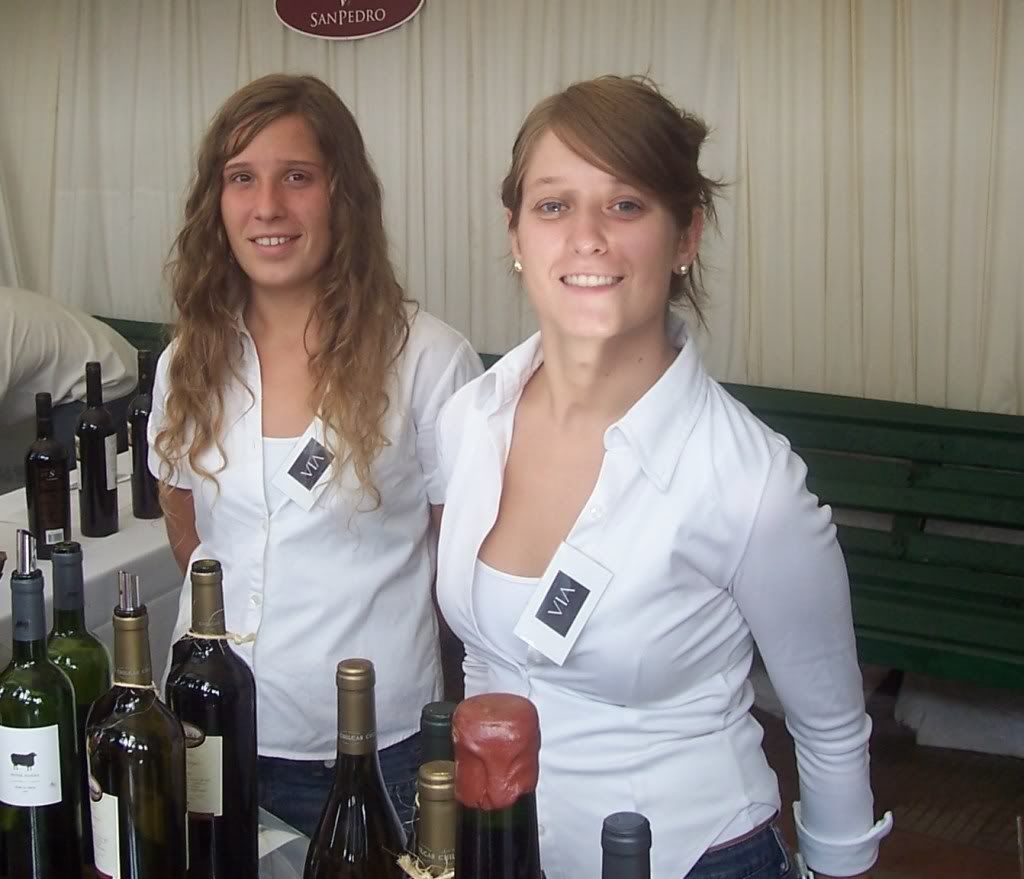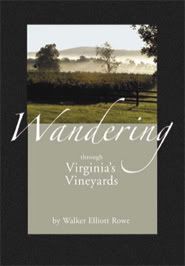Few things are more boring that sitting atop a deer stand waiting for a deer to amble into view, yet this is how I spent part of my Thanksgiving vacation. It is far more fun to hunt deer with dozens of hunters and hundreds of baying dogs, like they do on Blue Field plantation on Edisto Island, South Carolina, than to sit alone in the top of a tree. Yet there I sat: perched high in the air looking over a small mountain of yellow corn piled beneath my feet. I did not see a deer, but I did see a purring kitty that wandered dangerously into the line of fire.
As I swatted mosquitoes and wrestled with wayward thoughts, I wondered if that cat belonged to the black lady whose house I could see through the trees to my right. Behind me was her son's house. I was hunting here with their permission. There are lots of black people who live here on Edisto Island. Their modest dwellings are set beside more elaborate houses owned by the vacationing elite from Greenville, Charlotte, or Atlanta. There are few places in America where such juxtaposition of wealth and poverty lie side by side. I would see this theme repeated time and again as I hunted deer and duck throughout the holiday.
The next day my father and I piled into his camouflaged duck hunting boat and headed up the South Edisto River. We put the boat in the water at the old town of Willtown, founded in 1680 and abandoned shortly thereafter. The neighborhood briefly achieved some notoriety when the actress Barbara Hutton bought a farm there.
At the boat landing pickup truck after pickup truck lined up to launch their craft. Men decked in camouflage and rubber hip waders loaded decoys, shotguns, and shells into wooden Carolina duck boats and aluminum Duracraft. Most hunters were accompanied by handsome Labrador retrievers who growled at one another as they jealously guarded their turf.
Most of the hunters here were tugboat captains, construction contractors, and other middle class folk. I saw few of the crowd that my brothers calls the "L.L. Bean Hunters" because of the expensive hunting garb they buy from the mail-order catalogue of the same name. This latter group includes doctors from Charleston, federal judges, entrepreneurs of all stripes, and heirs to the great fortunes that once and still own so much of the Carolina tidewater region. These hunters are not headed for the public spaces that border all the navigable waters of the area. They are headed to diked-up, posted-no-trespassing private hunting clubs where the duck hunting is without a doubt better than it is on the open water. Today my father and I were without such invitation so we plunged headlong into the egalitarian public waterways.
I have always marveled at how my father can know where he is going as he flies through the pitch-black, fog-shrouded darkness of the pre-dawn morning. Perhaps it is simply luck that keeps him from plowing into a log or upending his boat on some sleeping twelve-foot alligator. We had a flashlight to illuminate the way, but that merely lit up the fog that stood before us. Some hunters prefer a particularly obnoxious device called a "Q beam" that casts something like a million candlepower into the void using a 12 volt battery. We had to make do with 6 volts of Duracell power.
I was glad it wasn't cold as I unwound plastic decoys and tossed them in the water. Cold, blustery weather is best for duck hunting, but I makes the hunter miserable as hell.
We pulled the boat into the reeds and waited for the sun to rise. I watched smoke from my father's cigarette waft into the darkness as I listened to the whistling sound of ducks flying overhead. Nature certainly intended man to hunt ducks, because he gave them such speed and agility. So great is their speed that the whistle as they fly by. Contrast this with, say, a sea gull or a cormorant that tend to float leisurely into view without much sound. They would be easy to shoot. A duck-especially one flying downwind-is damn near impossible to hit. Hence the abundance of empty brass shells that lie at the bottom of most rivers. If God had wanted man to hunt sea gulls he would have made them fly faster.
When the dawn broke I got to shoot only twice at a duck that moved much quicker that me. In the parlance of duck hunters, "I didn't cut a feather." It was a terrible day for duck hunting-perhaps the weather was too mild. When the weather is like this-duck hunters call this a ?blue bird day"- ducks tend to lie about in complacent safety on federal hunting preserves protected, as it were, by the federal government. It takes a little wind, rain, or snow to make them get up and move about.
The L.L. Bean duck hunters on the plantations behind and in front of me did not suffer the same fate. In the distance I could see ducks pouring into Ted Turner's plantation like so many clouds of mosquitoes. They say Ted quit hunting ducks when he married Jane Fonda. Jane, it seems, prefers to cuddle fuzzy little duckies rather than slaughter them.
Ted Turner used to own another duck pond: the 15,000 acre Kinloch plantation sixty miles away in Georgetown, the town where I was born. Unlike the rest of the country, which is largely divided into single family tracts, the banks of the Edisto, Cooper, Santee, and Wacammaw rivers are still divided into huge tracts given romantic names reminiscent of a novel by William Faulkner. Lucille Vanderbilt heiress of the Vanderbilt family, turned part of her Arcadia plantation into the pricey Debordieu beach real estate development. Bernard Baruch, head of Roosevelt's War Industrial Board, willed a large corner of the Wacammaw neck to the state. Tom Yawkee, owner of the Boston Red Sox, gave South Island and North Island to South Carolina. Dr. An Wang, founder of Wang Laboratories, willed his Edisto Island plantation to his son. Archibald Rutledge, former poet laureate, waxed lyrical from his Hermitage plantation on the Santee River. Other, less wealthy, landed gentry-owning hundreds of acres rather than thousands-include Inglesby, Maybank, Lachicotte, and Pritchard.
People still call these places "plantations" even though the accompanying rice crops and system of slavery disappeared 140 years ago. The name plantation still fits, because the properties include the requisite ante-bellum amenities. These include dikes and floodgates to regulate the flow of water and stately houses with widows walk porches and classical Greek columns. Today, legions of slave laborers are replaced by a caretaker and hired help to plant the wild rice, millet, corn, and wild celery needed to attract ducks. Such an elaborate set up cannot simply be called a "farm".
Perhaps South Carolinians still cling to the word "plantation" out of a reverence for the past. V.S. Naipal, an Oxford educated Indian writer from Trinidad, said in A Turn in the South that for a southerner the past is given religious reverence. Mr. Naipal spent enough time on Middleton plantation near Charleston to deeply understand South Carolina emotions and the high regard for family lineage and the state's history. He is one of few writers in the Diaspora who could understand the desire to fly the Confederate battle flag above the state capitol. For people who are used to scathing, shallow indictments of the South-such as that written by distant Yankees like John Steinbeck in Travels with Charles-Mr. Naipal's prose is intimately familiar and absolutely correct.
The next day five of us piled into two boats and headed off to hunt deer. My father said deer were spending the day lying about on islands where they felt safe from hunters. A state biologist told him a frost was needed to kill the green grass before the bucks would leave the safety of the woods for the open spaces where the hunters wait. So we headed down the creek to dislodge the deer from their safe haven
Andy, my brother; Gary, a friend; and I jumped into the waist-high water and waded toward a small clump of oak trees, palmetto trees, and myrtle bushes growing on a small hill set in the middle of the marsh. All around marsh grass and salt water surrounded the islet. Deer certainly had to swim to get to this place.
Andy walked into the woods and Gary and I surrounded either side. Andy marched through the bushes shouting and swatting dried palmetto fronds as he went. The idea is to make enough noise so the deer will flee. As I would learn later, it takes a lot of noise to convince a deer to leave its hiding place.
All three of us met again at the other side, none of us having seen any deer. Suddenly two, three, and then four shots rang out from behind us. Two does and one buck had waited until my brother had passed then they slipped out the other side of the island. They jumped into the creek and swam across. On the other side my father was waiting. It isn't sporting nor legal to shoot a swimming deer, so he shot when the deer climbed out of the water. We did all of the legwork yet my lucky father bagged one of the deer.
What worked once might work again so we headed back against the tide toward another island. This time I was given the job of yelling and beating the bush to frighten the deer. Neither my father, my brother, nor I are very good yellers-we are all softspoken. Still, I swell up my chest and let forth the loudest noise I could make, "Yo Deer. Git deer." and so forth ad infinitum.
I deliberately walked into the thickest bushes looking for deer yet mindful of rattlesnakes, copperheads, and spiders as large as your hand. My father's friend Fred had joined us so there were four men lining the edge of the island in the marsh.
I had walked nearly the length of the Island when I caught a glimpse of a doe bounding through the forest to my right. I shouted, "there's one" and ran after the fleeing game. My heart beat with excitement as I tore through the brush. Had a snake struck at my fleeing ankles, he would have missed, because I moved with the speed of adrenaline.
The deer jumped into the wide creek and was swept by the tide toward the other side. I jumped in Fred's boat and followed him across. In order to comply with the law and a sense of fair play I would have to jump out of the boat and shoot the deer only after it had reached dry land. I followed the deer one hundred yards to the other side and landed the craft where I thought the deer would climb the bank. As soon as the deer began to walk rather than swim I opened fire and shot three times. The third shot was fatal. I waded up a creek and picked the 100-pound doe up by her still-kicking legs. Then I carried her back to the boat.
When I first got in Fred's boat it was sparkling clean. Fred is the kind of person who cleans his boat with a toothbrush so as to get every nook and cranny. He had not planned to go hunting but had come out to see what all the shooting was about. So Fred drove his brand-new fishing boat rather than some dirty duck hunting craft. When I threw the deer into the bow, rivers of blood mixed with mud from my waders. Fred's boat was no longer bright white. If he had not been a hunter, Fred certainly would have been mad.
When I rejoined the others my brother dipped his hand in the deer's blood and smeared it all over my face. This ghastly gesture is an obligatory custom when you shoot your first deer. If you miss the next one they are supposed to cut off your shirt tail.
The next morning my brother and I left at 3 o'clock in the morning to secure a good spot next to the Bear Island state duck pond. Halfway there his outboard motor began to misfire. We traveled the last mile at less than two knots, since we were bucking the tide.
The riverbank was already dotted with the bright lights of hunters setting out decoys in the dark. If you want to hunt ducks on Saturday morning it seems you have to wake up earlier than 3 o'clock. Since the choice spots were taken and the motor barely worked we ducked into the first creek on our left.
Daylight brought many more ducks than we had seen yesterday. One reason was the state was hunting Bear Island. We could hear game wardens delivering hunters to their blinds. These lucky hunters had won the right to hunt the state land through a lottery.
Overhead we saw flights of widgeon, mallards, and black ducks. They barely glanced at our pathetic little clump of decoys as they winged toward the flooded fields of the state and private ponds. But one type of duck did frequent our spot. These were the nimble green wing teal that flew by at amazing speed and low altitude. More often than not they were over our decoys and then gone before I could raise my gun to fire. My brother is quicker than I so he got off more shots.
My brother and father have acute vision honed by years of hunting. They can perceive barely visible spots on the horizon and readily identify the type of ducks they see. This is important, because you can shoot different numbers of ducks depending on their species. Also certain ducks like the shoveler, the coot, and the merganser you don't want to shoot, because their flesh is not worth eating. Not to mention it would be embarrassing to gun down a blackbird, killdeer, or kingfisher in front of your peers. This is what candidate George Bush Jr. did when he went dove hunting in front of a press entourage in Texas.
I knocked down one teal and my brother got three. Andy's chocolate Labrador dog Sassy quickly retrieved each duck from the swiftly flowing Edisto river. If we did not have a dog the ducks would have been lost in the current.
When we packed up to leave, the motor would not start at all. I grabbed the paddle and wondered whether to turn left against the tide or right and paddle downstream. Either way it was five miles to the nearest boat landing. Andy said paddle to the middle of the river and wait for help.
The law says you must render assistance to any broken-down vessel. Evidently the first guy who passed us didn't read the legal code, because he zoomed by without stopping as I frantically waved the boat paddle. Dejected I sat down and spied a dead duck in the river.
We paddled toward the dead duck in order to retrieve it. As we got near I could see that the duck wasn't a duck at all but a raccoon. That fat raccoon was floating lazily in the middle of the river. It showed no interest in heading toward either bank. It seemed to require little effort on its part to move along slowly. Sassy growled at the wild little creature.
Ahead on the left a man and his son were picking up decoys. They had killed six teal but had found only four. The man said he would tow us back to Dawhoo landing once he found the remaining two ducks. He and his dog pounded the bush looking for their game. Eager to help and to repay their favor I jumped out of the boat with Sassy behind me. "Hunt dead," I shouted so Sassy would look for the downed ducks. In no time at all we found one. Clearly the gentleman was pleased.
I piled back into the boat and called my wife on the cellular phone. I told her we were broken down and would be home in a few hours. Then I picked up the duck I shot and admired its handsome green and brown plumage. I can't wait to go hunting again.
Tuesday, April 22, 2008
Subscribe to:
Post Comments (Atom)






No comments:
Post a Comment